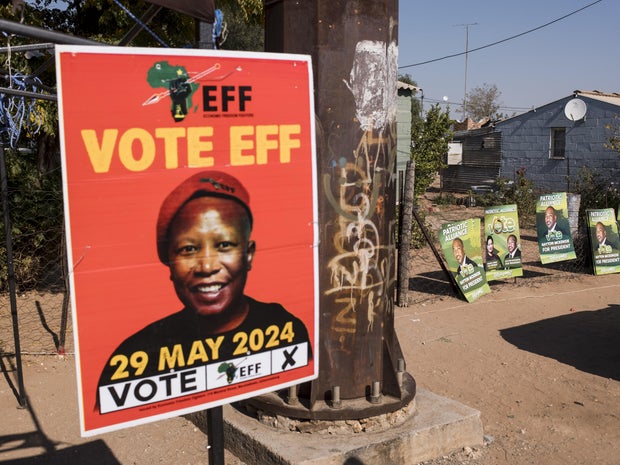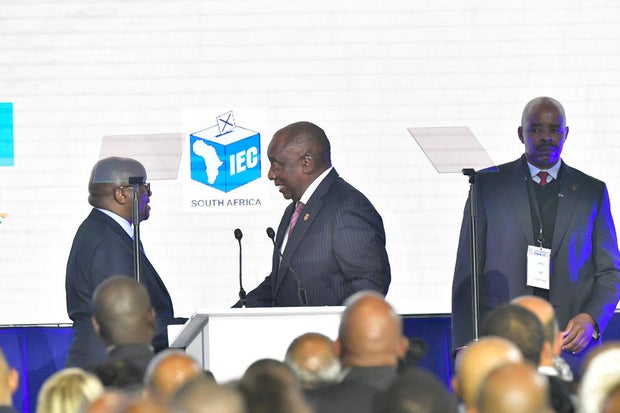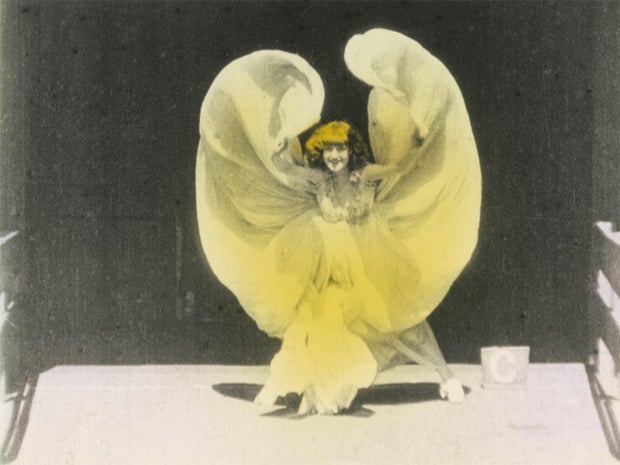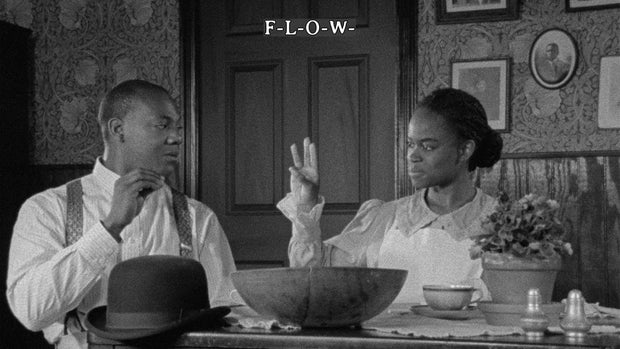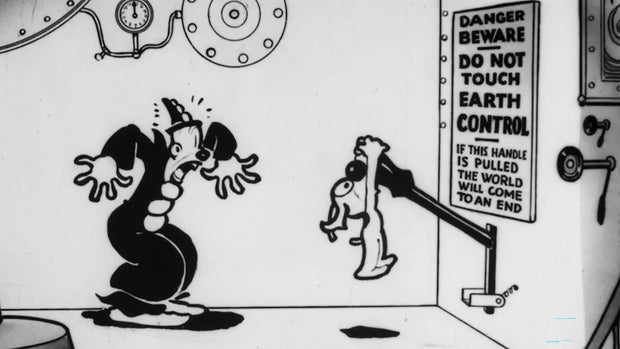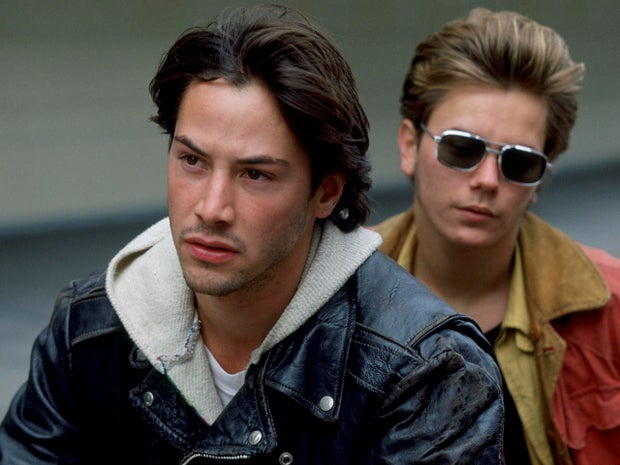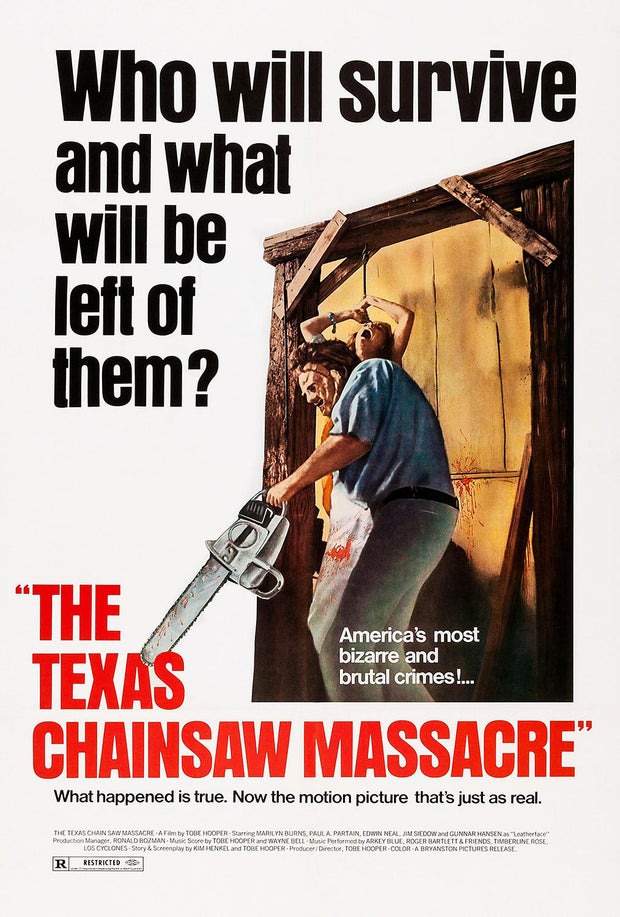CBS News
Why did Nelson Mandela’s ANC lose its majority in South Africa’s elections, and what comes next?

Johannesburg — On April 27, 1994, Black and White South Africans voted side by side for a new government for the first time in the country’s history. Nelson Mandela’s party, the African National Congress (ANC) had defeated apartheid and ushered in a new democratic era.
The ANC swept to power with ease and Mandela became South Africa’s first Black president to the delight of a mostly adoring country. Now, 30 years later, the party that brought democracy to South Africa has been defeated by it.
National election results announced over the weekend saw the ANC lose the electoral majority it had won in every round of voting since Mandela came to power on that historic day three decades ago.
Why did the ANC lose its long-held majority?
As they headed to the polls to cast their verdict on the ANC for the seventh time since 1994, South Africans had a lot to complain about.
RAJESH JANTILAL/AFP/Getty
A stubbornly high unemployment rate, which officially hit 32.9% last year but in reality is much higher; persistent economic inequalities; rampant corruption and a lack of public service delivery, particularly in poorer areas, all contributed to the dethroning of the ANC.
Then there were the frequent power cuts. Intermittent outages have been a near-constant for well over a year.
There’s also a soaring crime rate, with 130 murders and 80 rapes documented every single day in the last quarter of 2023.
Together, all these factors dented confidence in the long-ruling party, and the result was a slap in the face for the ANC, which garnered just 40.2 percent of the votes — well below the more than 50% needed to remain in power.
What comes next for South Africa?
Instead, the ANC has two weeks to negotiate a new power-sharing government with members of other parties. This could take the form of either a coalition with a smaller party, or a government of national unity, which would see multiple parties get roles in a unified cabinet.
The options available could not be more different.
The second largest share of the votes, 21.8%, went to the official opposition Democratic Alliance (DA), which has been on the political scene since the dawn of South Africa’s democracy and historically was a merger between the former apartheid rulers, the National Party, and liberal Whites who participated in the old apartheid regime but criticized the country’s racist policies.
The DA wants to liberalize the national economy, including a move toward greater privatization, but it is dogged by a credibility issue — perceived by many Black South Africans to be a mostly white, middle-class party that doesn’t care about the poor.
Then there’s the uMkhonto we Sizwe (MK) party, which exploded onto the political scene at the end of last year. It’s made up of former disgruntled ANC members and led by the disgraced former President of South Africa Jacob Zuma, who faces multiple corruption charges and was already sent to prison briefly in 2021 for defying a court order to testify at a corruption inquiry.
As a convicted felon, Zuma cannot run for office, but he remains the face of the party and helped MK snatch 14.9% of the vote away from the ANC by appealing to Zulu nationalism.
Like every election since democracy arrived in South Africa, this one has been declared objectively free and fair by observers. But that hasn’t stopped Zuma casting doubt on the results, including with public claims of vote-rigging, without providing any evidence.
On Sunday, the former leader issued an ominous warning.
“The results are not correct,” he said. “Results should not be declared. If you’re declaring, you’re provoking us. Don’t start trouble.”
MK’s manifesto is anti-constitutional. It speaks about nationalising the SA Reserve Bank and holding a referendum on scrapping the constitution completely.
The attacks on the election results appear aimed at denting the credibility of the vote and creating uncertainty. But Zuma is also fighting for his survival — desperate to avoid his corruption trial which could very well send him back to jail.
Lagging behind MK was another ANC breakaway party, the Economic Freedom Front (EFF), which argues that the ANC has not redressed the racial economic imbalances of apartheid. It wants to redistribute land to the less well-off and nationalise mines, banks and other key parts of the economy. But it made no gains in this election, instead dropping to 9.5% for a fourth place finish.
Jeremy Suyker/Bloomberg/Getty
The ANC could attempt to form a coalition with either the DA or the EFF and another smaller party, or even with MK, although it’s unlikely that Zuma would agree to this unless the ANC boots out its leader, incumbent South African President Cyril Ramaphosa, which seems just as unlikely, at least for now.
The unity option — a possible reset for South Africa?
As an alternative, a government of national unity would see a grand multi-party coalition, and possibly provide a reset for South Africa.
Despite this country’s multitude of problems and a poor voter turnout compared to previous years, democracy still holds strong in South Africa.
The election was mostly peaceful and South Africans actually sent a clear message by giving no single party a mandate to govern.
Gracious in defeat, Ramaphosa said the people’s will was clear, and he accepted the results.
“Our people have spoken, whether we like it or not,” said Ramaphosa. “Through their votes they have demonstrated clearly and plainly that our democracy is strong, that our democracy is robust and enduring.”
Sydney Seshibedi/Gallo Images/Getty
He said it seemed clear that South Africans want their leaders, from across the political spectrum, to find common ground and work together.
The cheerful goodwill could evaporate to some degree amid the cut and thrust of coalition-making, but the process has revealed a constitutional democracy that’s more robust than the chaos Zuma’s party seems to be hoping for.
The next 15 days will be crucial in shaping a government that serves the people of South Africa, and hopefully returns some trust in its political leaders.
CBS News
The Electoral College votes to confirm results for the 2024 presidential election today. Here’s what to know.

At state capitols across the U.S. Tuesday, the presidential electors will be gathering to cast their electoral votes, formalizing President-elect Donald Trump’s victory over Vice President Kamala Harris in the 2024 election.
It’s largely a ceremonial vote, the next step after the presidential election. When Americans cast their ballots on Election Day, they’re technically voting for a slate electors committed to supporting their choice for president and vice president.
How does the Electoral College work?
The rules governing the Electoral College are outlined by the 12th Amendment.
Presidential electors, according to the amendment, “shall name in their ballots the person voted for as President, and in distinct ballots the person voted for as Vice-President, and they shall make distinct lists of all persons voted for as President, and of all persons voted for as Vice-President, and of the number of votes for each, which lists they shall sign and certify.”
The political parties choose the slate of electors ahead of the general election.
After Election Day, all the votes are counted and then certified by each state. According to the 2022 Electoral Count Reform Act, the deadline to certify the results is set at six days before the electors are scheduled to meet, traditionally on the first Tuesday after the second Wednesday in December.
The Electoral Count Reform Act of 2022 also requires that each state determine a state official — the governor unless specified otherwise — to be responsible for submitting the “certificate of ascertainment” that identifies the state’s electors and includes a security feature.
What were the 2024 Electoral College results?
Trump won 312 Electoral College votes to Harris’ 226. See state-by-state results here and below.
Nationally, Trump also won the popular vote, winning 77.2 million votes to Harris’ 75 million.
How many electoral votes does each state have?
The Electoral College consists of 538 electors, and a majority of 270 is needed to become president.
Each state’s electoral votes are equal to the number of representatives they have in the House, plus two senators.

While the number of Electoral College votes has remained at 538 since 1964, the number of votes per state changes to match congressional apportionment after the decennial census. Between the 2020 election and the 2024 election, Texas gained two Electoral College votes, while five other states — Colorado, Florida, Montana, North Carolina and Oregon — gained one electoral vote each. Six states lost an electoral vote: California, Illinois, Ohio, Michigan, New York, Pennsylvania and West Virginia.
The map below shows the changes by state between the 2020 election and the 2024 election.

Does each elector have to vote with the state election results?
Forty-eight states and Washington, D.C., are winner-take-all, so the winner of the popular vote in the state wins all of the state’s electoral votes. Maine and Nebraska allocate their electors based on the winner of the popular vote within each Congressional District and then two “at-large” electors are determined based on winner of the statewide popular vote.
The electors are supposed to vote in accordance with the outcome of the popular vote in their state. The Constitution does not require electors to vote with the winner of the popular vote, but most states have laws that nullify the votes of “faithless electors.” The Supreme Court ruled in 2020 that states can punish these “faithless electors.”
According to FairVote, there have been 90 “deviant” votes cast by electors for president since the founding of the Electoral College, although the majority of these were due to the death of a party’s nominee rather than a true deviation from the voters’ intent.
There have also been 75 faithless electors for vice president, for a total of 165 faithless electors throughout history, according to FairVote.
After the 2020 election, so-called “fake” Republican electors in seven battleground states won by President Biden met anyway and cast phony votes for Trump. State criminal charges have been filed against fake electors in Georgia, Michigan and Nevada. In charging Trump for attempting the overturn the election results, special counsel Jack Smith said these fake electors were part of a plan to overturn the election, orchestrated by pro-Trump attorneys with Trump’s support. Those charges have been dismissed since Trump’s victory in the 2024 election.
What’s next after the Electoral College certification?
After the results are signed and certified, they are sent to Harris, acting as the president of the Senate. The vote certificates must be received by the fourth Wednesday in December, which this year is Dec. 25. The archivist then transmits the sets of certificates to Congress on or before the new Congress meets on Jan. 3, 2025.
On Jan. 6, 2025, Congress meets in a joint session to count the Electoral College votes, overseen by Harris. After the votes are counted, the vice president announces the winner of the election.
Trump and Vice President-elect JD Vance will take the oath of office at the inauguration at noon on Jan. 20, 2025.
CBS News
“Star Trek II,” “Dirty Dancing,” “Beverly Hills Cop” among films named to National Film Registry for 2024

“Star Trek II: The Wrath of Khan,” the Eddie Murphy action-comedy “Beverly Hills Cop,” the romantic drama “Dirty Dancing,” “The Social Network,” about the founding of Facebook, and the Coen Brothers’ modern western “No Country for Old Men,” are among the films named today to the Library of Congress’ National Film Registry, to be preserved for future generations.
Each year since 1989, the Library has selected 25 motion pictures to be preserved given their cultural, historic and aesthetic importance to America’s film heritage. The Registry includes movies from all genres, after being nominated by filmmakers, academics and fans.
Also among this year’s additions: Cheech & Chong’s stoner comedy “Up in Smoke”; the James Cagney-Humphrey Bogart crime drama “Angels with Dirty Faces”; Andy Warhol’s underground classic “The Chelsea Girls”; the children’s fantasy-adventure “Spy Kids”; and the gruesome horror film “The Texas Chainsaw Massacre.”
Paramount Pictures/Getty; Lionsgate; Warner Brothers; Miramax; Sony Pictures
The full list of this year’s additions reflects advances in film technology, from the earliest (an Edison short from 1895 called “Annabelle Serpentine Dance”) to the most recent (David Fincher’s slickly edited and shot “Social Network,” from 2010), as well as the breadth of the American experience. Edward James Olmos stars in two Registry additions (“American Me” and “My Family/Mi familia”) depicting the lives of Latino immigrants, while “Powwow Highway” tells a story of Native Americans, and “Compensation” dramatizes the lives of deaf characters.
“Films reflect our nation’s history and culture and must be preserved in our national library for generations to come,” said Librarian of Congress Carla Hayden. “We’re honored by the responsibility to add 25 diverse new films to the National Film Registry each year as we work to preserve our cultural Heritage.”
On Wednesday, Dec. 18, at 8 p.m. ET, Turner Classic Movies will screen a selection of this year’s Registry additions. Select titles are also freely available online in the Library’s National Screening Room.
Below is a complete list of this year’s additions.
To submit nominations for films to be inducted in the Registry, click here.
2024 additions to the National Film Registry
“American Me” (1992)
In his first film as director, Edward James Olmos stars as a prison gang leader who, upon his release, tries to maintain his hold on criminal organizations and drug trafficking in Los Angeles.
“Angels With Dirty Faces” (1938)
Once the Hays Office decided in the early 1930s that movies had become too violent and licentious, bad guys either had to make good for their crimes, or pay the ultimate price. No longer could James Cagney break the law and get away with it! Director Michael Curtiz’s film about childhood friends who follow different paths — Cagney, as gangster Rocky Sullivan, and Pat O’Brien, as Father Connolly — offers a redemptive tale in which young hoodlums idolize Rocky. But when the condemned criminal is being led to the execution chamber, his change of heart — pretending to die a coward’s death — offers a way out for the impressionable youth. One of Cagney’s best performances, the film also features Humphrey Bogart as a crooked lawyer, Ann Sheridan, and the Dead End Kids (whose Hollywood careers would turn from kitchen sink drama to slapstick comedy).
Kino/Museum of Modern Art
“Annabelle Serpentine Dance” (a.k.a. “Serpentine Dance – Annabelle”) (1895)
This early Edison short film captures dancer Annabelle Moore maneuvering fabric-wings. Several versions of the film were released, including some with color tints.
“Beverly Hills Cop” (1984)
Eddie Murphy had already appeared in two hit films — “48 HRS.,” opposite Nick Nolte, and “Trading Places,” pairing off against Dan Aykroyd — but in “Beverly Hills Cop” Murphy carried the film on his own as Detroit detective Axel Foley, a fish-out-of-water who has gone to Los Angeles on the trail of a killer. Buoyed by Murphy’s screen charisma and Harold Faltermeyer’s electronic score, the mix of action and comedy was a blockbuster, a formula carried forth in three sequels starring Murphy.
© The Andy Warhol Museum, Pittsburgh, Pa., a museum of Carnegie Institute. All rights reserved.
“The Chelsea Girls” (1966)
Andy Warhol and Paul Morrissey’s 16mm feature was a proto-typical underground movie — heavily improvised, with rough edits (or no edits), multiple and split screens, and a leisurely 3.5-hour length. Being banned in Boston at least added to its allure. Today, the film, set in the landmark Chelsea Hotel in New York City, and featuring Nico, Ondine, Brigid Berlin, International Velvet, Mario Montez, Mary Woronov, Dorothy Dean and other Warhol “Superstars,” offers a unique time capsule of the bohemian 1960s.
“Common Threads: Stories From the Quilt” (1989)
The origin of the NAMES Project Aids Memorial Quilt — a tapestry of stories memorializing those who died from HIV/AIDS, as well as a society that had failed them — is told in this Oscar-winning feature documentary, directed by Rob Epstein and Jeffrey Friedman, that also earned a Peabody Award.
UCLA Film & Television Archive/Janus
“Compensation” (1999)
The debut feature of director Zeinabu irene Davis tells two parallel love stories, set nearly a century apart, each involving a deaf woman and a hearing man diagnosed with a fatal disease. Michelle A. Banks (who is herself deaf) and John Earl Jelks play both couples, and their stories are illustrated with title cards and American Sign Language.
“Dirty Dancing” (1987)
At a 1960s Catskills resort, a teenage girl vacationing with family hits the dance floor with a hot instructor, and summers would never be the same. Jennifer Grey and Patrick Swayze starred in the hit romance that earned the Jennifer Warnes-Bill Medley song “(I’ve Had) The Time of My Life” an Oscar and a Grammy.
“Ganja and Hess” (1973)
Duane Jones, who played the lead in “Night of the Living Dead,” stars in this horror story in which an anthropologist studying ancient African cultures becomes a vampire. A low-budget tale that served as a metaphor for drug addiction, “Ganja and Hess” was directed by writer and playwright Bill Gunn, and was later remade by Spike Lee as “Da Sweet Blood of Jesus.”
“Invaders from Mars” (1953)
When little David McLean (Jimmy Hunt) wakes up in the middle of the night and witnesses a spaceship landing nearby, he tries to convince his dad it was real. But when dad returns from investigating the landing site, there’s something not quite right about him. And then, a similar change comes over his mother. What are those strange marks on the back of their necks? What’s poor little David to do? Fifties paranoia blends with stylish photography, cool-looking sets, and ridiculous Martian costumes in this nostalgic sci-fi tale directed by William Cameron Menzies.
UCLA Film & Television Archive
“KoKo’s Earth Control” (1928)
A wild addition to the genre of apocalyptic cinema, this silent cartoon by Max and Dave Fleischer features Koko the Clown and his naughty dog Fitz, visiting the place that runs our planet’s weather. Alas, there is a lever that warns, if pulled, it will mean the end of the Earth! Restored by the UCLA Film & Television Archive primarily from the original nitrate negative, this is a hilarious take on the End Times — and the problem of pets that refuse to obey. Bad, BAD dog! [You can watch the restored film here.]
“My Family/Mi familia” (1995)
Directed by Gregory Nava (“The Ballad of Gregorio Cortez”), this emotional and tearful multi-generational story of Mexican immigrants settling in East Los Angeles stars Jimmy Smits, Edward James Olmos, Esai Morales, Elpidia Carrillo and Enrique Castillo.
“The Miracle Worker” (1962)
Anne Bancroft and Patty Duke each won Academy Awards for their performances in the true story of Anne Sullivan and her attempts to teach Helen Keller, a child deaf and blind since she was a toddler. Keller’s autobiography was originally adapted for television and later Broadway (Bancroft and Duke both starred in the stage version). Director Arthur Penn’s black-and-white film version preserved the actresses’ performances in a cooly unsentimental story of determination and human connection.
Warner Bros./Discovery/Criterion
“My Own Private Idaho” (1991)
Gus Van Sant (“Drugstore Cowboy”) wrote and directed this haunting tale of friendship, loosely based on plays of Shakespeare, starring River Phoenix and Keanu Reeves as street hustlers searching for family and connection.
“No Country for Old Men” (2007)
The Coen Brothers’ sharp precision and keen eye for irony is beautifully on display in this enthralling modern-day Western, in which Josh Brolin’s hunter comes across the scene of a drug deal gone very bad. Alas, that satchel containing mounds of currency with no living owner is just a little too tempting to pass by. Enter Javier Bardem’s sinister hit man, hot on Brolin’s trail, who will let nothing deter him from his prey. Based on Cormac McCarthy’s novel, the film won four Academy Awards, including best picture, best direction, and best supporting actor for Bardem, weird haircut and all.
“Powwow Highway” (1989)
A prize-winner at the Sundance Film Festival, Jonathan Wacks’ comic-drama was remarkable in its time for telling a humanistic story of Native Americans without resorting to stereotypes. Gary Farmer and A. Martinez star as former childhood friends who reconnect for a road trip in a dilapidated car, a journey that is by turns spiritual and criminal.
“The Pride of the Yankees” (1942)
An inspirational biopic of one of sports’ true legends, this story of New York Yankee Lou Gehrig, whose life came undone with a diagnosis of amyotrophic lateral sclerosis, or ALS (what came to become known as Lou Gehrig’s disease), stars Gary Cooper and Teresa Wright, and features several of Gehrig’s teammates (including Babe Ruth) as themselves. Cooper’s reenactment of Gehrig’s farewell speech at Yankee Stadium (in which he states, “Today I consider myself the luckiest man on the face of the Earth”) became one of the actor’s most memorable moments.
“The Social Network” (2010)
Like the Akira Kurosawa classic “Rashomon,” “The Social Network” uses competing points of view to decipher the origins of Facebook, as told through legal depositions being filed years after the revolutionary website was born, by former friends now suing each other. Based on Ben Mezrich’s “The Accidental Billionaires,” David Fincher’s classic is a tale of genius, hubris and ethics, involving a paradox: A site founded on the notion of exclusivity which grew to host hundreds of millions of members. Starring Jessie Eisenberg as Mark Zuckerberg, with Andrew Garfield, Max Minghella, Armie Hammer, and Justin Timberlake, and an Oscar-winning script by Aaron Sorkin. Oscars also went to Trent Reznor and Atticus Ross for their haunting score, and to editors Kirk Baxter and Angus Wall.
“Spy Kids” (2001)
Writer-director Robert Rodriguez made a splash with his debut feature, “El Mariachi,” and followed with “Desperado” and “From Dusk till Dawn.” But for the fantasy “Spy Kids,” he connected with his inner kid, in a story about two children of secret agents who go out on a mission to rescue their captured parents. Starring Antonio Banderas and Carla Gugino as mom-and-pop spies, and Alexa Vega and Daryl Sabara as their budding young agents, the film was a hit, spawning a franchise (including a 3-D entry starring Sylvester Stallone).
“Star Trek II: The Wrath of Khan” (1982)
The first film of the “Star Trek” franchise to be inducted in the National Film Registry, it’s considered by most to be the best movie, in capturing both the zing of the original TV series and the camaraderie of the Enterprise crew. Directed by Nicholas Meyer, it’s a sequel of sorts to the 1967 episode “Space Seed,” in which a 20th century villain in hibernation is thawed out, stirring much interplanetary trouble. In “Wrath of Khan,” Ricardo Montalban returns in the role of Khan, who sets his sights not just on destroying worlds, but also in taking revenge against Admiral James T. Kirk (William Shatner). There is action galore, but it’s Kirk’s friendship with Spock (Leonard Nimoy) that gives this film its emotional heft.
LMPC via Getty Images
“The Texas Chainsaw Massacre” (1974)
Among exploitation movies, horror is a genre that has enticed many aspiring filmmakers with little money but lots of fake blood at hand. But Tobe Hooper’s grand guignol tale of a group of young people who find themselves at the wrong isolated farmhouse went far beyond typical drive-in fare. It would give rise to countless slasher films (from “Halloween” to “Friday the 13th”) in which a weapon-wielding bad guy (in this case Leatherface) ticks off cast members one by one. Nasty, bloody and weirdly funny, the film even found itself projected onto the screen of the Museum of Modern Art in New York — a fact it heralded in newspaper ads, as if that would give a low-budget horror film more street cred.
“Up in Smoke” (1978)
The counter-culture duo Cheech Marin & Tommy Chong had already released five successful comedy albums (including “Big Bambu” and “Los Cochinos”) when they dipped their toes into movies with this stoner comedy. Dipped their toes isn’t exactly accurate, though; they plunged head-first into a wild mélange of bits involving marijuana, LSD, hash, cocaine (or Ajax cleanser mistaken for cocaine), alcohol, and pills that are anybody’s guess what they are. “Up in Smoke” took in more than $100 million at the box office, leading to a string of Cheech & Chong films.
“Uptown Saturday Night” (1974)
Bill Cosby, Harry Belafonte, and director Sidney Poitier star in this action comedy in which victims of a robbery go in search of a stolen wallet containing a winning lottery ticket. With Richard Pryor, Flip Wilson, Roscoe Lee Browne and Rosalind Cash. Poitier directed two follow-up films starring himself and Cosby, “Let’s Do It Again” and “A Piece of the Action.”
“Will” (1981)
Cinematographer Jessie Maple directed this, the first independent feature helmed by an African American woman, in which a former athlete and coach (played by Obaka Adedunyo) struggles to overcome drug addiction.
Zora Lathan Student Films (1975-1976)
The democratic nature of the National Film Registry allows for the preservation of Hollywood studio features, independent films, industrial and advertising shorts, student films, and newsreels. The Registry has also preserved home movies, which capture American life in unfiltered and wholly revealing ways. During her years as a film student in Chicago, Adaora “Zora” Lathan shot six short 16mm films documenting her family members — whimsical vignettes which she characterized as “artworks.”
CBS News
Head of Russia’s nuclear defense forces killed in Moscow blast triggered by device hidden in scooter, officials say

Moscow — The head of Russia’s Nuclear, Biological, and Chemical Defense Forces, Lt. General Igor Kirillov, was killed along with his deputy early Tuesday in an explosion in Moscow, Russia’s Investigative Committee said.
An explosive device hidden in an electronic scooter went off outside a residential building as the two men left the structure, Agence France-Presse cites investigators as saying.
ALEXANDER NEMENOV / AFP via Getty Images
“Investigators, forensic experts and operational services are working at the scene,” committee spokesperson Svetlana Petrenko said in a statement. “Investigative and search activities are being carried out to establish all the circumstances around this crime.”
ALEXANDER NEMENOV / AFP via Getty Images
The committee carries out responsible major investigations in Russia.
Kirillov was sentenced in absentia by a Ukrainian court on Dec. 16 for the use of banned chemical weapons in Ukraine during Russia’s military operation in Ukraine that started in Feb. 2022.
AFPTV / AFP via Getty Images
Ukraine’s Security Service, the SBU, said it had recorded more than 4,800 uses of chemical weapons on the battlefield since February 2022, particularly K-1 combat grenades.
During the almost 3-year operation, Russia has made small but steady territorial gains to the nearly one-fifth of Ukraine it already controls.
Kirillov had been in his post since 2017, AFP notes.



